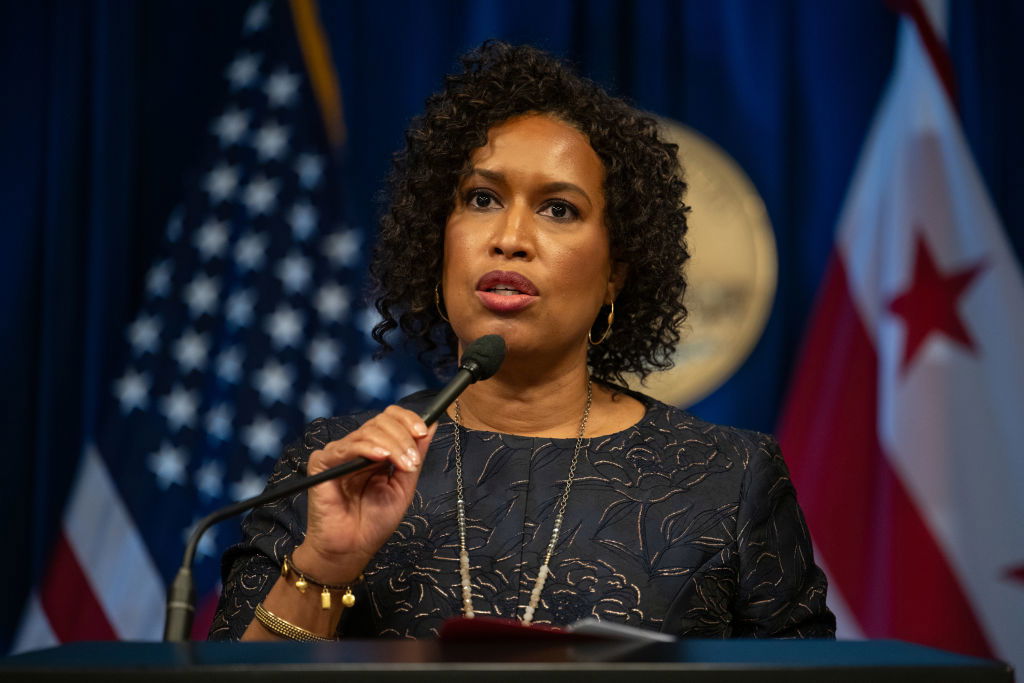
November 18, 2025
University leadership welcomed the initiative as an extension of their missions
Written by Sean Mitchell
Facing a wave of retirements and persistent vacancies across city agencies, Washington, D.C., launched a first-of-its-kind apprenticeship pipeline in 2024 that placed graduating seniors from the District’s two HBCUs into year-long, paid positions across municipal departments—to convert many of those apprentices into full-time public servants.
The initiative, announced by Mayor Muriel Bowser, paired Howard University and the University of the District of Columbia (UDC) with the Department of Employment Services (DOES) and participating city agencies to recruit 25 apprentices. At the program’s end in its first year in June, 24 out of the 25 apprentices had completed it.
“We want the best and the brightest, the people who are passionate about our community, to work at D.C. Government,” Mayor Bowser said at the announcement.
“This program will keep talent in D.C. and bring young leaders into D.C. Government,” she added.
The program, called the HBCU Public Service Program, is designed around a cohort model. Apprentices become full-time employees at host agencies, supported by structured professional development, mentorship, and university-based coursework. DOES’s official Request for Applications (RFA) outlines the framework: paid placements, benefits, networking opportunities, and post-program advancement prospects.
The first cohort included 25 graduating seniors from Howard University and UDC who had been placed in key District agencies, including the Department of Employment Services (DOES), the Department of Behavioral Health, DC Water, and the Office of the Attorney General.
The strategy responds to a long-standing challenge. According to city officials and workforce analysts, the District faces what they call a “silver tsunami” of retirements paired with inequities in employment pipelines.
“Our workforce … has gotten older, and we haven’t necessarily built that pipeline,” said Kenneth Walker, Deputy Director of Federal Workforce Programs at DOES. He added that unpaid internship models were insufficient; paid apprenticeships offered the commitment and stability needed to generate impact.
University leadership welcomed the initiative as an extension of their missions. UDC President Maurice D. Edington described it as “a perfect fit” for the university’s workforce development pathways.
Former Howard University President Ben Vinson III called the program “visionary,” saying it aligned with Howard’s emphasis on leadership, truth, and service, and recognized that many students come to campus already oriented toward public service.
With promising early benchmarks, DOES reported a 96% completion rate of the first cohort and early internal promotions for participants. Questions remain about scale and long-term retention. The RFA stipulates that apprentices must maintain D.C. residency and that converted positions emerge from existing or newly budgeted roles. Many observers say success should also be measured by how many apprentices transition into lasting careers, and the quality of support provided during and after their term.
In its second year, the program is expanding its criteria for both applicants and learning institutions by opening it to all students and institutions, not just HBCUs.
“Based on the success of Cohort One, we were able to expand our footprint to where this opportunity is available to any college student that is looking to work within the district,” Walker said. “It was very important for our directors to make sure those opportunities existed across all colleges and universities. So, that was the vision — same program, same model … we just broadened our applicant pool.”
For students and the D.C. government alike, the program is a strategic investment. The cohort helps agencies fill hard-to-staff roles—from technology and social services to operations—while also fostering more equitable employment pathways. If the pilot’s results hold, the model could be scaled or replicated in other jurisdictions grappling with similar talent-pipeline and equity challenges.
RELATED CONTENT: HBCU Professor Overcame The Prison Pipeline To Earn His Doctorate In Medical Sciences

